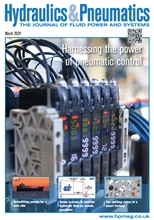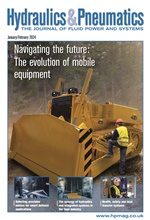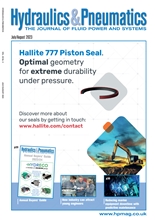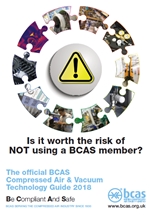Beko - When the going gets tough…(Oct 2012)
A condensate management system can be the unsung hero in the world of compressed air, as Beko Technologies testifies.
The Beko Technologies sales and service staff regularly hear customers talk in glowing terms about their new compressor or the energy saving performance of a dryer or intelligent control system. But, as the company’s UK service manager Chris Norris, points out, few get excited about their new condensate management system until a problem occurs. “There are masses of variables, type of compressor oil, environmental contaminants and temperature just to name a few – so there are possibilities of failures that need to be considered,” he said.
Norris adds that condensate management is largely about box-ticking. He reflects that the factory engineer has many issues to keep on top of – things that could, or do, go wrong; improvements and cost savings etc. However, when it comes to condensate management this is something the factory engineer just has to do – no choice, no major benefit to the way the department runs (although, of course, there are major environment benefits to be had). Therefore, as Norris considers, once the factory engineer has purchased and installed a unit he then wants to forget about it. However, in reality, this is not possible.
“Water contains bacteria which cannot be removed by conventional filtration,” explains Norris. “Bacteria multiply rapidly and under normal conditions 1 bacterial organism per millilitre will grow into more than 1 million colony forming units within one working shift. Bacteria will also produce slime and can produce 100 times their own volume. So it is evident that if unchecked this will become a serious problem. The outcome will be possibly that on some low cost systems that the unit will appear to be working but the filter will be inefficient and condensate with too much oil entrained will go to the drains and contaminate our water resource. Significant fines could be levied too. The other possibility is that the unit will no longer be able to flow the volumes of condensate and will overflow. This is not tolerable but at least the condensate is not reaching the water table and rivers and the engineer has a signal that action has to take place.”
Definitive comment
Beko has solutions for these scenarios. When purchasing a condensate management system Beko strongly advises users to think about their situation. The type of oil and local contaminants will be known and if there are any doubts Beko can analyse a sample of condensate as part of its service offering to customers; thus enabling a definitive comment on the type of management system required. As one example, because of the volatile organic compounds used in the printing industry condensates often will not separate; i.e. they will remain in colloidal suspension. These systems will require a splitting system able to introduce a material that can ‘split’ the oil by combining with it and be easily removed in that combination. One system that can facilitate this is Beko’s Bekosplit, which is well proven for difficult condensates.
Beko has also developed a system that can overcome the issue of blocking and blinding by forcing flow using a pump system. The Flow control Device uses Beko’s level sensor technology to measure the condensate level within the Owamat. Once the pre-set level is reached the flow control unit pumps condensate through the Owamat filter and out to drain. The flow control system overcomes the problem of slime blocking the filter sets. This problem of slime will affect all brands of oil and water separators that have the relevant bacteria present in the condensate.
For companies that suspect they have problems with condensate system and the law, Beko is offering a free site survey to inspect and test condensate systems to ensure customers’ legal obligations are being met.
Photo caption: Beko Owamat oil/water condensate separators.
Events
-
Smart Manufacturing & Engineering Week
05 - 06 June, 2024
NEC, Birmingham -
HILLHEAD 2024
25 June, 2024, 9:00 - 27 June, 2024, 16:00
Hillhead Quarry, Buxton, Derbyshire UK










